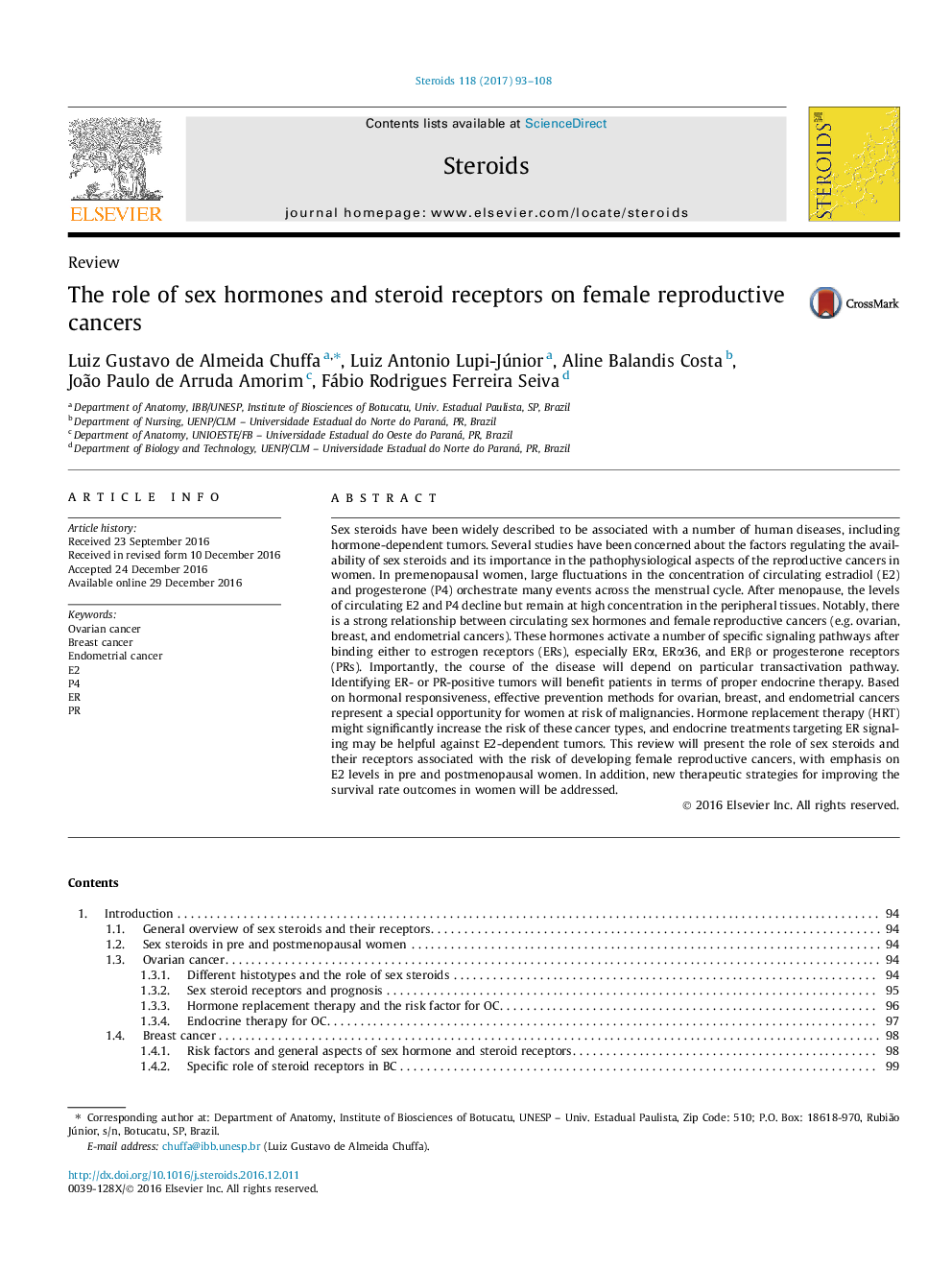| کد مقاله | کد نشریه | سال انتشار | مقاله انگلیسی | نسخه تمام متن |
|---|---|---|---|---|
| 5516703 | 1542690 | 2017 | 16 صفحه PDF | دانلود رایگان |
- Changes in sex hormones and steroid receptors are associated to female reproductive cancers.
- E2 promotes tissue growth and increases the potential of cancer cells to metastasis.
- E2-ER pathway stimulates cell migration, differentiation, and survival in gynecologic tumors.
- The role of P4-PR signaling remains controversial in most of the gynecological malignancies.
- Identification of ER and PR-positive tumors can guide appropriate therapeutic planning.
Sex steroids have been widely described to be associated with a number of human diseases, including hormone-dependent tumors. Several studies have been concerned about the factors regulating the availability of sex steroids and its importance in the pathophysiological aspects of the reproductive cancers in women. In premenopausal women, large fluctuations in the concentration of circulating estradiol (E2) and progesterone (P4) orchestrate many events across the menstrual cycle. After menopause, the levels of circulating E2 and P4 decline but remain at high concentration in the peripheral tissues. Notably, there is a strong relationship between circulating sex hormones and female reproductive cancers (e.g. ovarian, breast, and endometrial cancers). These hormones activate a number of specific signaling pathways after binding either to estrogen receptors (ERs), especially ERα, ERα36, and ERβ or progesterone receptors (PRs). Importantly, the course of the disease will depend on particular transactivation pathway. Identifying ER- or PR-positive tumors will benefit patients in terms of proper endocrine therapy. Based on hormonal responsiveness, effective prevention methods for ovarian, breast, and endometrial cancers represent a special opportunity for women at risk of malignancies. Hormone replacement therapy (HRT) might significantly increase the risk of these cancer types, and endocrine treatments targeting ER signaling may be helpful against E2-dependent tumors. This review will present the role of sex steroids and their receptors associated with the risk of developing female reproductive cancers, with emphasis on E2 levels in pre and postmenopausal women. In addition, new therapeutic strategies for improving the survival rate outcomes in women will be addressed.
Journal: Steroids - Volume 118, February 2017, Pages 93-108
